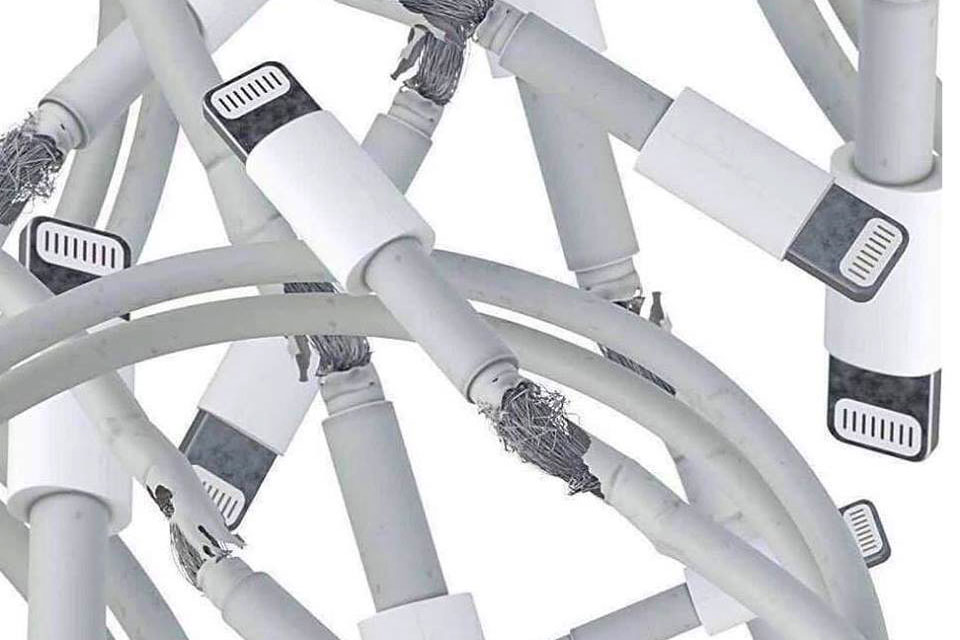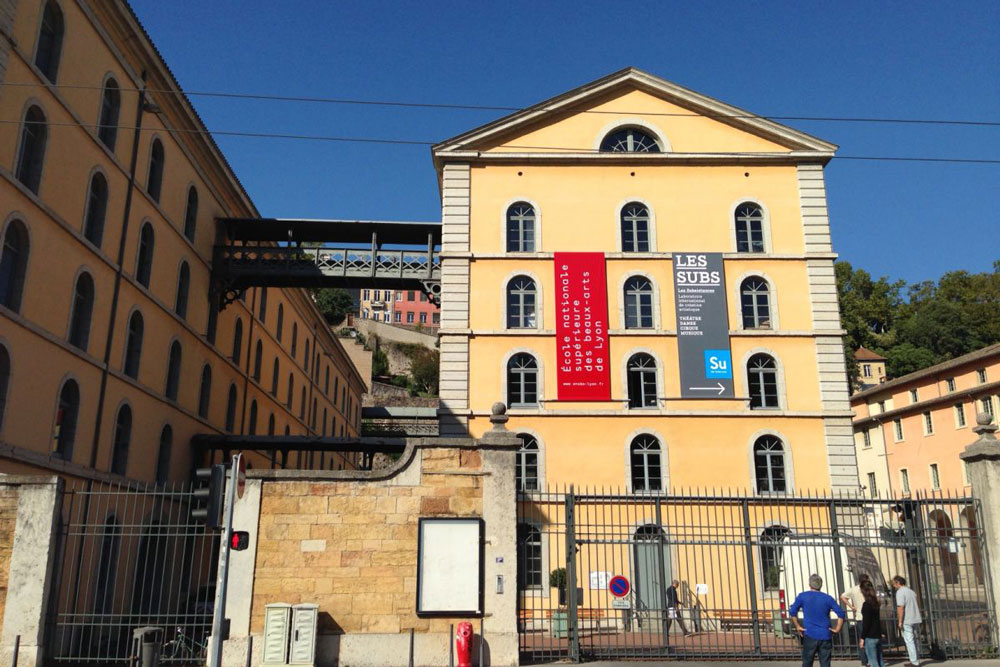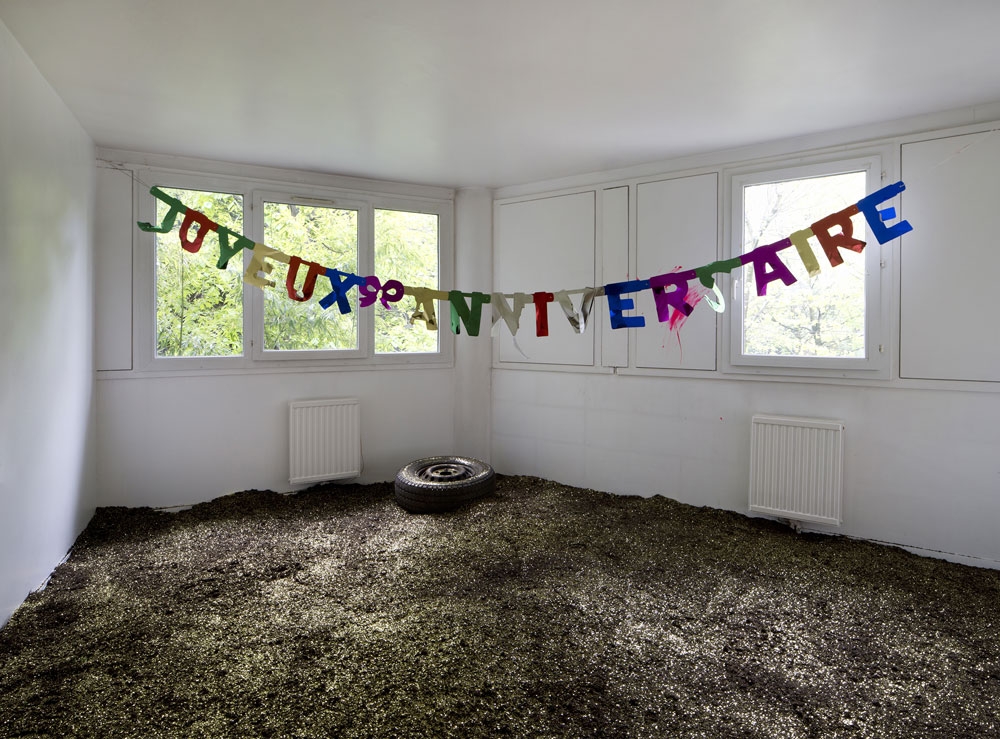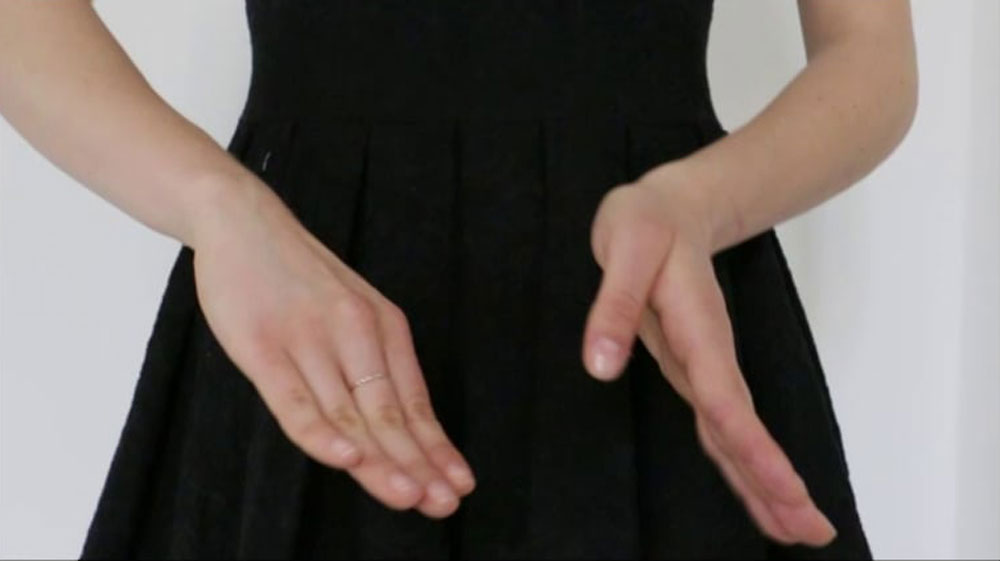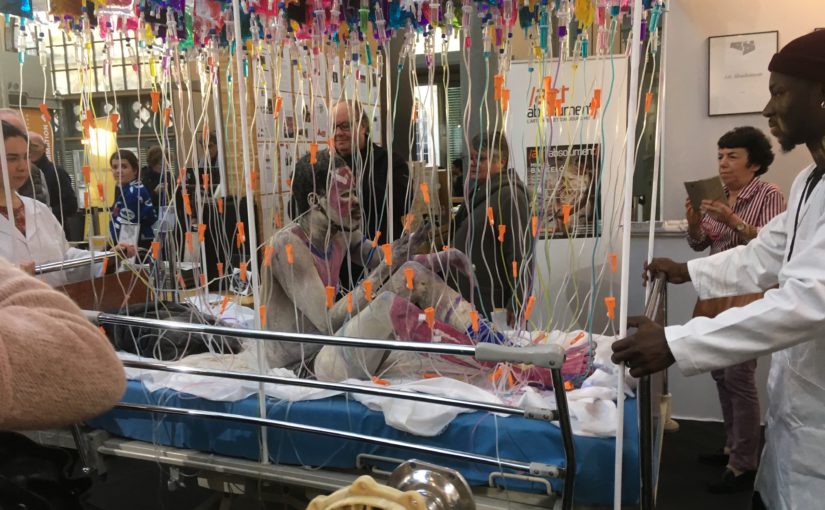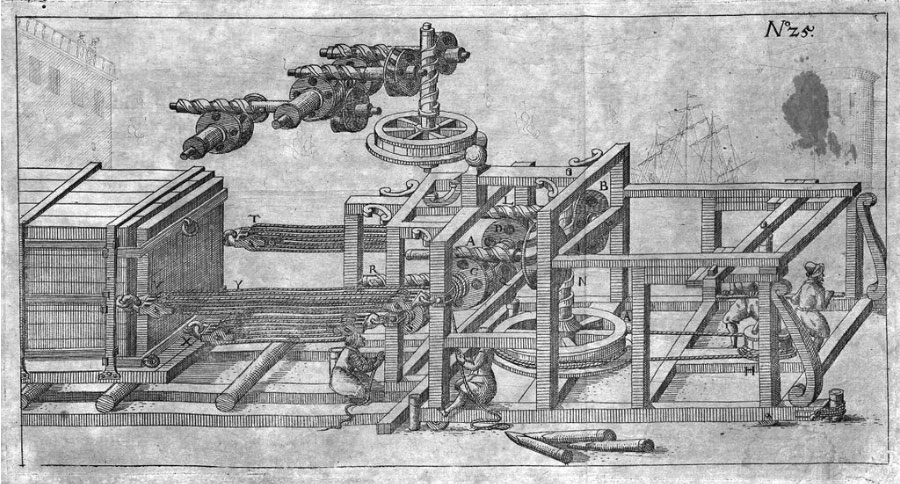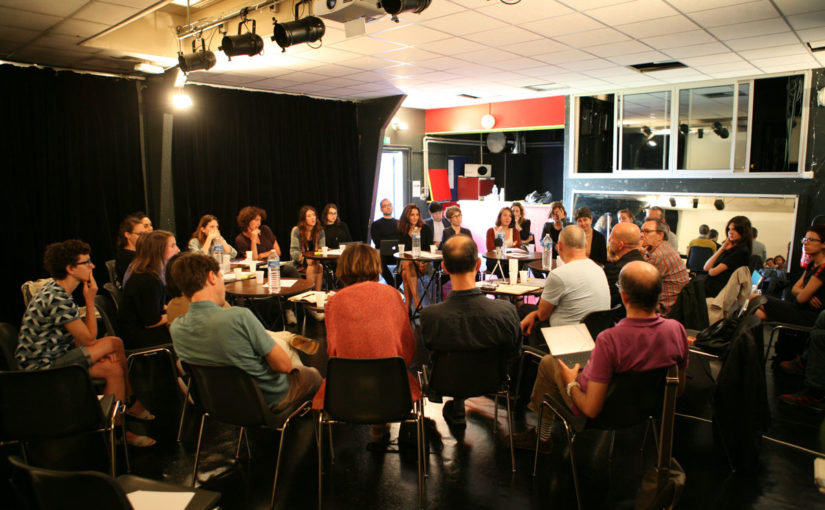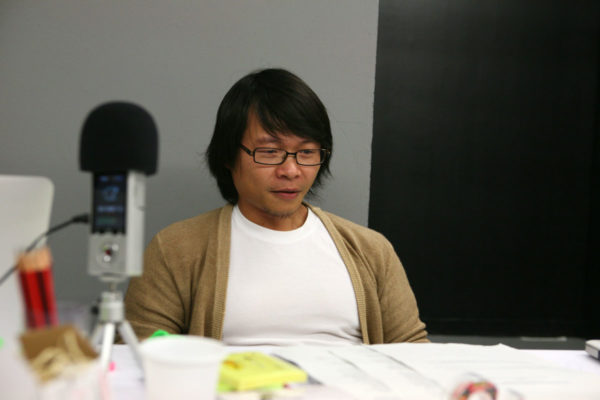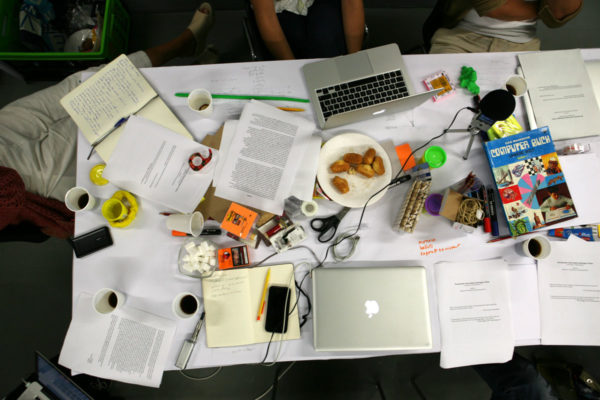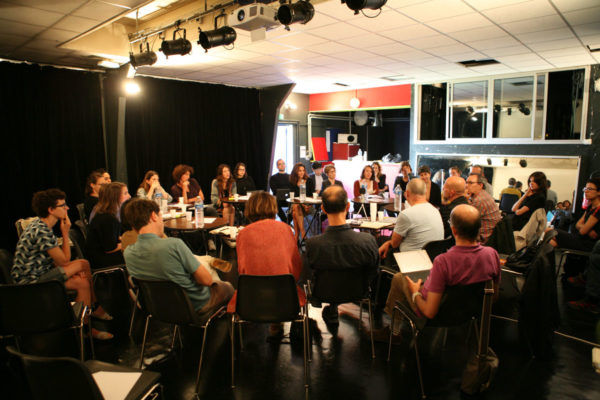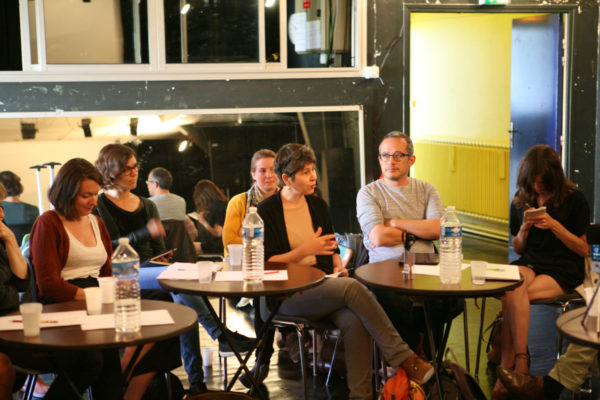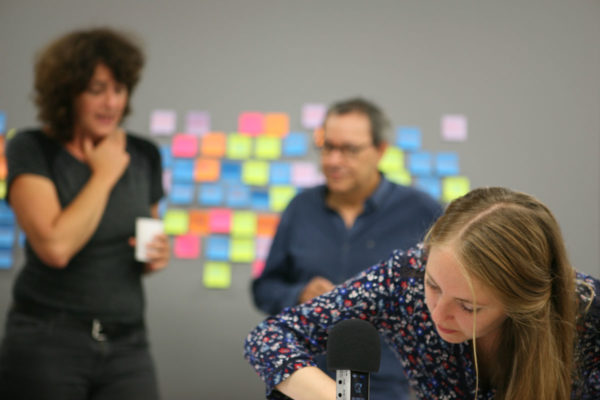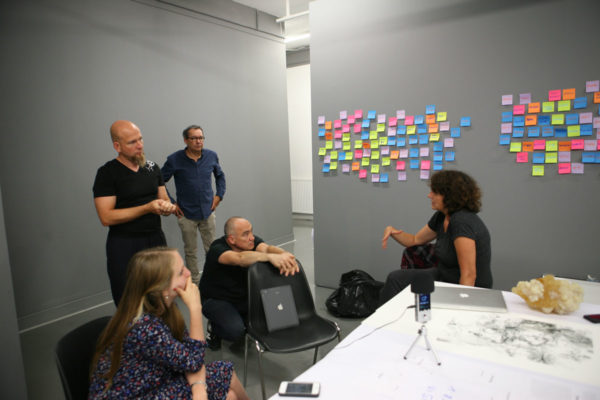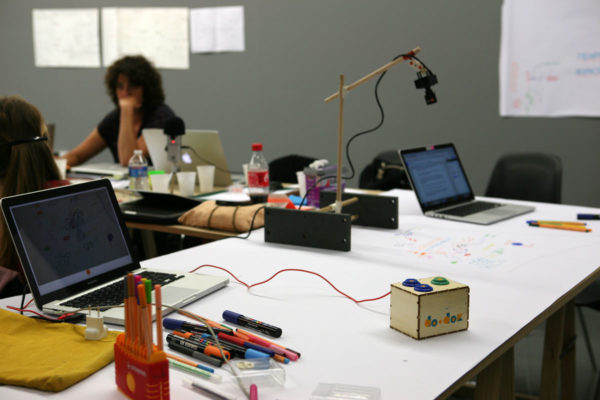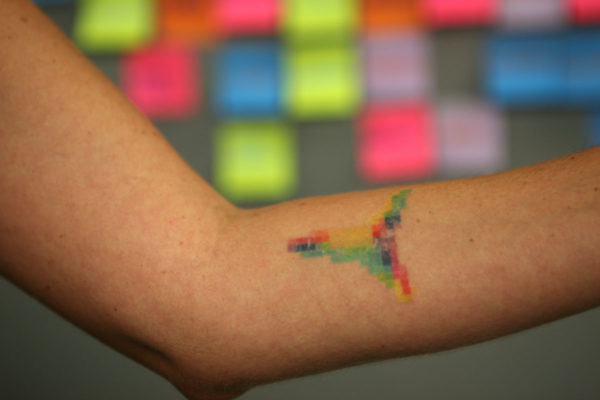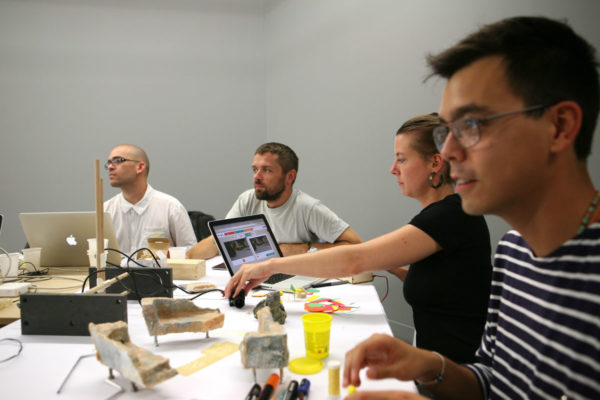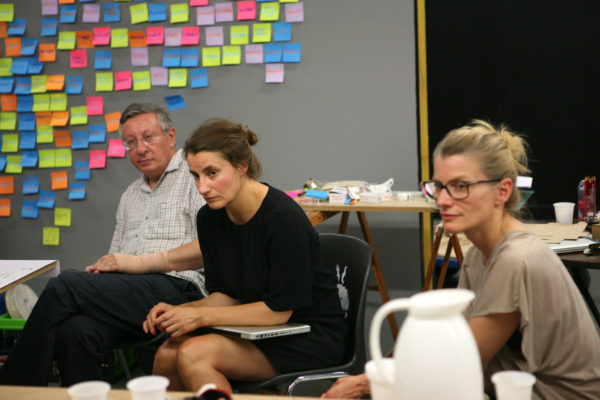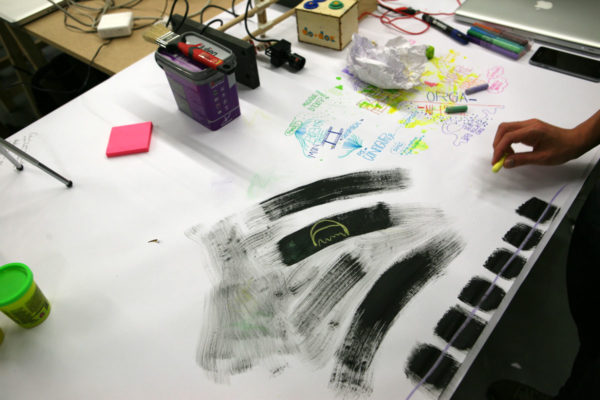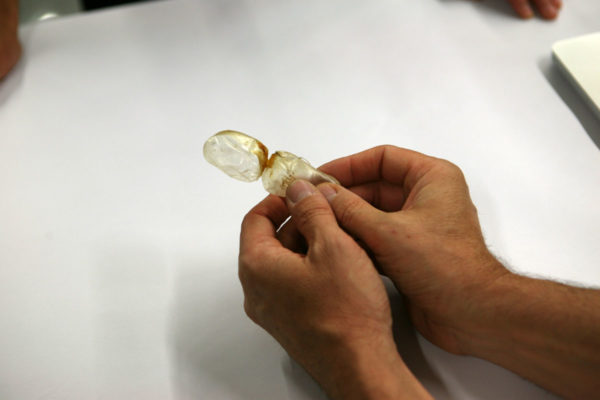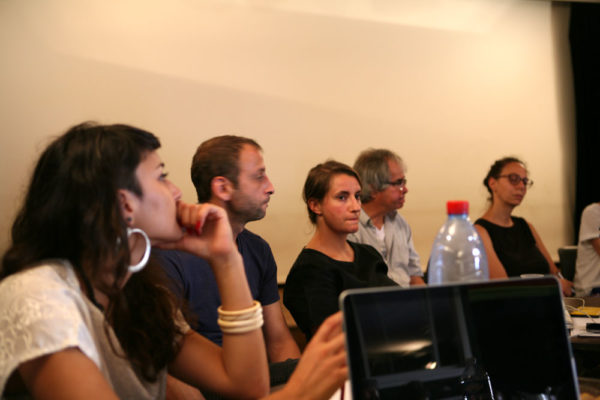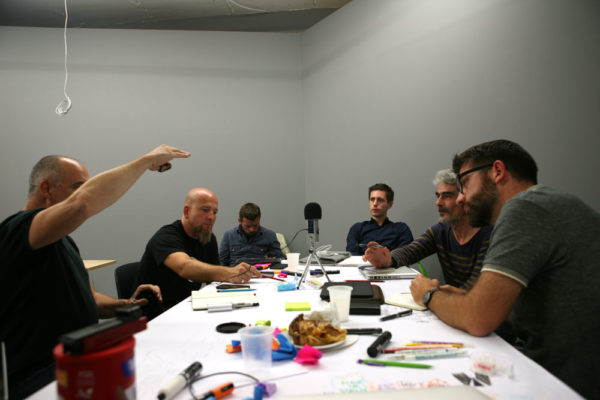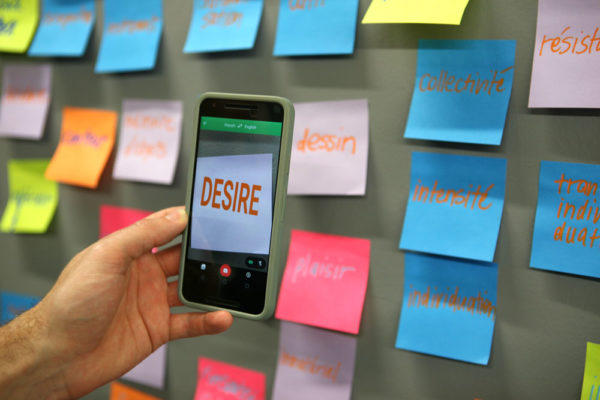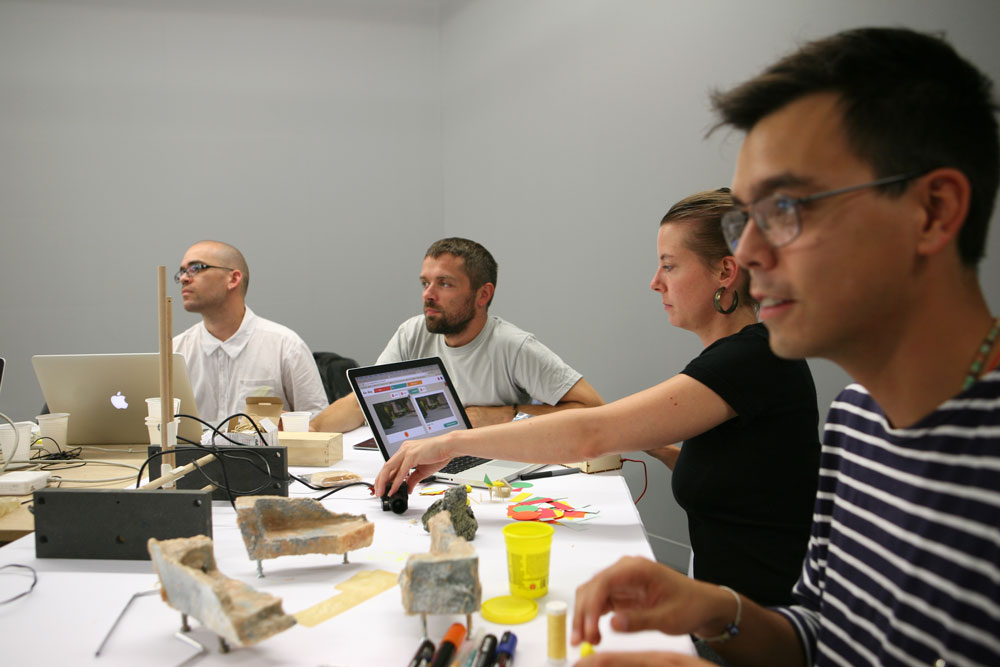EnsadLab Displays research group and the Labex ICCA welcome Lucie Orbie (curator and coordinator of the 50° Nord artistic network) et David Quilés Guilló (creator and coordinator of The Wrong Biennale).
Exocène is a series of four talks organised by the EnsadLab Displays research group and Labex ICCA, dedicated to the new experimental contexts for art exhibitions. This second talk is focused on networked structures conducting experimentation.
Tuesday, November 13th, 2018, 6-9pm
Talk in French and English with simultaneous translation
On booking only at : Facebook group or displays@ensad.fr
EnsAD, 31 rue d’Ulm 75005 Paris – Salle 308, 3e étage
Exocène
Series of talks, EnsadLab Displays research group & Labex ICCA
In the wake of countercultures, ““do it yourself”” movements and artist-run spaces, a growing number of places and networks that create environments which are exogenous to existing art exhibition venues are appearing in France. Such initiatives are part of a broader digital context in which social networks and platforms constitute “third places”, which establish an ““era of the outside” ” (referred to here as “Exocene”), where, by claiming original spaces, it becomes possible to invent new forms of experimentation.
The Exocene meetings welcome curators of these venues and facilities that are creating new environments for experimentation in the realm of art exhibitions. Often (but not systematically) created in precarious economies, these structures are characterised by the innovative spaces they offer and the novel relationships they have with their surrounding communities. Conceived as alternative to institutional structures that sometimes become less effective in their particular setting, and designed to act as levers to create new conditions and public practices in the arts, do these frameworks alter the potential of the exhibitions they host? What is distinctive about the relationships they establish with their immediate surroundings and their audiences? How can we develop counter-spaces while fighting for their necessary recognition?
For each of the program’s 4 long talks, two guests will be invited to engage in a discussion with the Displays research group that will allow in-depth exchanges with the audience : Small is Powerful on October 18th with Juliette Fontaine (Capa Aubervilliers) and Julie Portier (La Salle de Bains, Lyon), In Network on November 14th with Lucie Orbie (50° Nord) and David Quilés Guilo (The Wrong Biennale), Playing collective on November 29th with Clémence Agnez (Glassbox) and a member of the &Nbsp; collective (Clermont-Ferrand), The Big Scale on January 15 with Sylvie Boulanger (CNEAI) and a representative of Lafayette Anticipation (sous réserve).
Talk #2 – November 12th, 2018 – In Network
With Lucie Orbie (curator and secretary general of 50° Nord, one of France’s first artistic networks) and David Quiles Guilló (creator and head of the international online project The Wrong Biennale). Meeting in French and English, with an interpreter.
This meeting is dedicated to two artistic and curatorial platforms, one which is web-based and relayed by numerous geographical venues (The Wrong Biennale) and another, which that covers the area along around the French-Belgian border (50° Nord). It questions explores the potentialities and the critical stakes of contemporary art exhibitions and practices that arise from networks that which go beyond concentrated institutional formats, while putting together a large number of stakeholders of widely varying scales. The relationships these networks create aim to renew curatorial practices, and reach a critical mass that affords them a particular [type of] institutional visibility, one which is usually not available to individual players; this allows the venues to experiment with specific time frames that can challenge exhibition formats. What type of experimentation and which specific critical approaches do these projects allow?
Created in 1997 by small and medium-sized associations, the 50°Nord network now connects over 30 professional production, distribution and academic structures working with contemporary art. Associative galleries, art centers, nomadic structures, artists’ associations, museums, FRAC (French Regional Contemporary Art Funds), training facilities establishments, among others, create artistic projects in very diverse contexts and carry out complementary actions. As a professional platform, which acts as a catalyser for these energies and collaborative projects, 50°Nord is committed to leveraging the influence and expanding the network of its members; it also seeks to value the regional art scene and to broadcast promote contemporary art among the general public. The 50°Northd network is one of the first regional contemporary art networks created in France. The cross-cutting activities of this structure conceived to be the expression of a particular geographic area, constitute a new way of mapping the arts and designing artistic projects.
The Wrong is a decentralized art bienniale dedicated to digital art organised since 2013 by its founder, David Quiles Guilló. Aiming to create and promote contemporary digital art to a wider audience worldwide, bringing together young artists and curators from this scene. The Wrong operates both online and offline ; The online part of the biennale takes place in “pavilions”, curated spaces on the web, where selected works are exhibited. The offline part takes place in “embassies”: art spaces, galleries, institutions and artist-run spaces all over the world. For its third edition in 2017-18, The Wrong brought together 124 curators who selected 1.621 artists.
